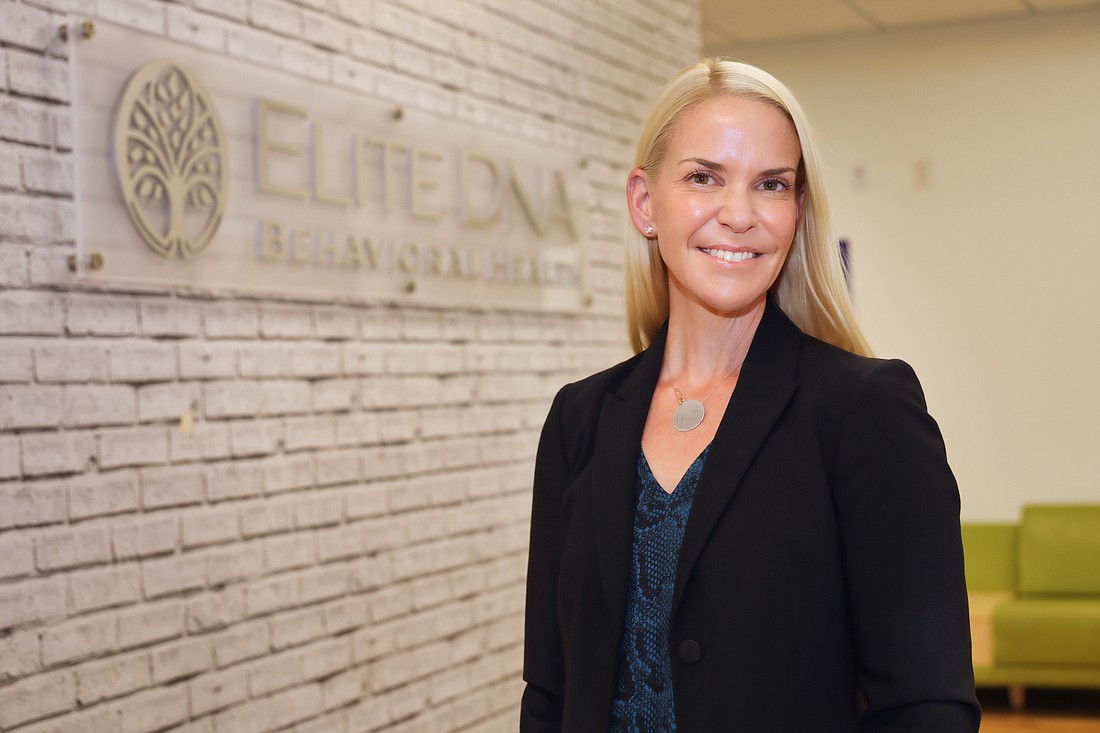- December 13, 2025
-
-
Loading

Loading

Many successful entrepreneurs will say they knew they were somehow different from their wage-earning colleagues — it takes a certain kind of person to choose start a business.
For Elizabeth Dosoretz, there was no option, knowing what she did about the need for evidence-based behavioral health services in Southwest Florida, particularly for patients paying with insurance. “I couldn’t not do something,” she says.
The way Dosoretz tells it, she had no choice but to rent an office in Fort Myers and start providing therapy services for patients under 18 in 2013. Two years later, she felt she had to expand so she could offer similar services to adults. By 2018, her practice had grown from one office to seven.
All this despite some unvarnished pushback from the person that today serves as president of her company, Elite DNA Behavioral Health.
“I was at a First Watch,” Dosoretz recalls. “I told my husband, ‘I’m going to start a clinic.’ He said, ‘Liz, you can’t just go start a clinic.’ And I said, ‘I’m telling you, I’m going to.’”
And then she did.
As of the end of 2022, Elite DNA employed a staff of nearly 400 care coordinators, psychologists, therapists, social workers, psychiatrists, case managers and support staff — up eye-opening 90% over the last three years. And the company was operating in 28 locations, with recent additions including Bradenton, New Port Richey, Port Charlotte and Sarasota. Since then, the numbers have continued to grow; it naow has more than 600 employees and 30 total locations.
That translates to roughly 2,000 patients seen per day, with more than 40,000 patients seen in the past six months. And for the business, that means double-digit revenue growth in each of the past three years, proving it’s possible to build a successful medical practice that accepts Medicare and Medicaid. (The company declines to provide specific revenue figures.)
To date, Elite DNA’s footprint has been focused on Florida, with an office as far north as Jacksonville. But Dosoretz says the company is contemplating growing to other states, depending on its ability to identify a patient base in need it can effectively serve.
The ability to serve a broad patient base is critical to Dosoretz’s mission for her company. For some patients, the anxiety of grappling with complicated insurance processes can be enough to convince them to give up on pursuing a form of care that in many communities still carries a negative stigma. “People come in here feeling really broken, and then their insurance is complicated,” Dosoretz says.
At the same time, clarity of vision has helped to simplify the hiring process. When interviewing candidates, Dosoretz says that buy-in for Elite DNA’s mission is often “very quickly what will make or break the right person for us.”
Dosoretz met her first hire through a friend of a friend at the gym. Even then, she knew the job she was offering would be easy to turn down.
“I told him, ‘I can give you five hours a week at $12 an hour.’ I felt guilty even offering,” she says.
Fortunately, that was enough to get started for Philip Cirrone, who today serves as Elite DNA’s chief strategy officer. Cirrone didn’t have a background in mental health, but what he lacked in experience he made up for with hard work.
One of his first purchases after being hired on Jan. 2, 2014? “Medical Billing & Coding for Dummies,” Dosoretz says.
“We started to learn everything that we could about Medicaid,” she adds. “We could’ve opened day one and taken cash, but that was completely the antithesis to what I wanted to do. I specifically wanted to be the place that people from all economic backgrounds could come and be seen.”
Other hires were brought on more conventionally, like the child psychiatrist she found by posting a job ad on Indeed.com. In that instance, more notable than the means of finding the employee was how difficult it was getting a qualified candidate from the local market.
“There were very few licensed child psychiatrists, and maybe not even one who was taking Medicaid,” Dosoretz says.
Despite its challenges, the prospect of hiring new clinicians has never held Elite DNA back. And once she finds the right candidate, Dosoretz says, converting is often easy.
“If you’re a true clinician at heart, it’s not hard for me to sell it,” she explains. “The only thing we’re doing is bringing together people who want to create positive change. I have the easiest job in the world.”